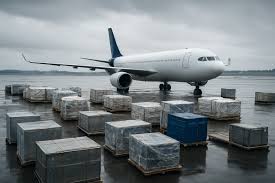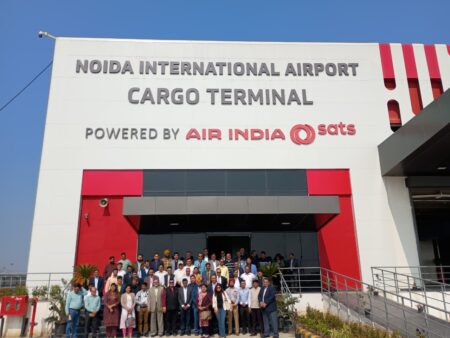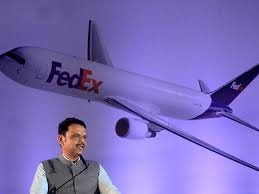Innovating Indian logistics, Vikram Singh Meena, Founder and CEO, TechEagle Innovations, discusses drones’ transformative impact, reshaping operations beyond delivery. Explore their roles, future impact, AI integration, regulatory dynamics, and workforce implications.

In defence, drones are envisioned as reliable cargo transporters to border areas
Drones have emerged as versatile assets in the logistics sector, extending their impact beyond conventional delivery services. The larger picture at the grassroots level reveals a profound influence on diverse industries, from saving lives to reducing capital and operational expenses for e-commerce and hyperlocal businesses. The agility of drones enables the swift transport of emergency supplies in hard-to-reach areas, outpacing traditional land transport by up to 25 times. This not only enhances efficiency but also results in a substantial reduction of expenses by half, making drones economically viable contributors to logistics operations.
Shaping the future
Anticipating the future role of drones in the logistics landscape prompts a closer look at emerging technologies and paradigm shifts across industries. In defence, drones are envisioned as reliable cargo transporters to border areas, ensuring the safety of personnel. TechEagle’s drone delivery network, spanning the entire country, promises unparalleled efficiency, reducing delivery times and costs significantly. This transformative journey is fueled by emerging technologies that promise to redefine logistics on a national scale.
Harnessing data
The symbiotic relationship between AI systems and drones yields a trove of data that, when harnessed effectively, enhances decision-making processes and operational efficiencies in the Indian logistics domain. This data is instrumental in refining drone performance, optimising designs, incorporating additional features, and improving control mechanisms. The insights derived contribute to an operational landscape where drones boast improved speed and extended ranges, elevating the overall efficiency of logistics operations.
Regulatory challenges
The regulatory landscape for drone usage in logistics has undergone significant evolution in recent years. Dedicated platforms like the Digital Sky Platform and case-to-case approvals signify progress. However, challenges persist, particularly in metropolitan areas with red zones and towering structures. Despite these challenges, industry players showcase the safety and reliability of drones when operated within regulations, turning regulatory compliance into an opportunity for innovation and excellence.
Workforce transformation
The advent of drones in logistics necessitates a transformation in the workforce, with a demand for professionals equipped with specific skill sets. The industry is experiencing a seismic shift towards technology-centric skills, marked by the rise of Industry 4.0. This shift brings forth a demand for future-ready professionals such as systems engineers, drone pilots, and embedded engineers. Collaborations between industry and academia are paving the way for educational programs tailored to the drone industry, ensuring a skilled and adaptable workforce for the future.










